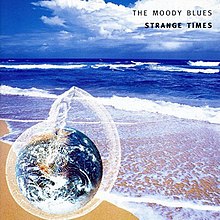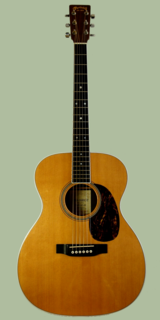
A Night at Red Rocks with the Colorado Symphony Orchestra is a live album by The Moody Blues, recorded from a live performance at the Red Rocks Amphitheatre on 9 September 1992. This performance was the first time The Moody Blues performed in concert backed by a full orchestra. They subsequently toured, performing with regional orchestras throughout. The concert was held in celebration of the 25th anniversary of their second, but most renown album, Days of Future Passed, which also featured the London Festival Orchestra. The full video of this concert was broadcast as a fundraising broadcast for PBS in the United States.
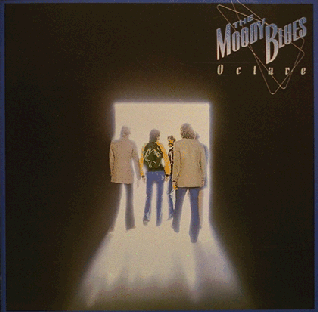
Octave is the ninth album by The Moody Blues, released in 1978, and their first release after a substantial hiatus following the success of the best-selling Seventh Sojourn in 1972. The album proved to be the last for the group with keyboardist Mike Pinder, who departed during the album's sessions, and declined an offer to tour with the group. Pinder had just started a new family in California, and found that he was not getting along with his bandmates as he had before. Pinder would be replaced by former Yes keyboardist Patrick Moraz in time for their 1979 tour, beginning a new era in the band's history. Octave would also be the final studio album from the band produced by Tony Clarke.
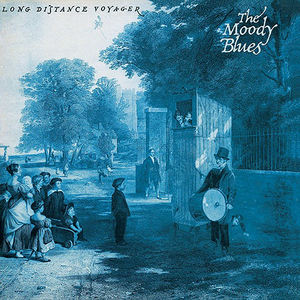
Long Distance Voyager is the tenth album by The Moody Blues, first released in May 1981 on the group's Threshold record label. It was the group's first album featuring keyboardist Patrick Moraz in place of co-founder Mike Pinder, who left after Octave in 1978.
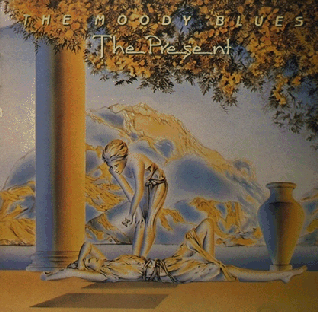
The Present is the eleventh album by the Moody Blues, released in 1983. It is the second album of the Patrick Moraz era. It provided three minor hit singles in the U.S. with "Blue World" (#62), "Sitting at the Wheel" (#27) and "Running Water". The album has a track sequence designed to capitalise on the legacy of the more successful Long Distance Voyager, with Justin Hayward's songs at the beginning and Ray Thomas's at the end.

Keys of the Kingdom is the fourteenth album by the rock band The Moody Blues, released in 1991. Although some of the tracks recall the songwriting on Sur la Mer, the failure of Keys of the Kingdom to produce any major hit singles would mark the beginning of the Moodies' decline in popularity with mainstream audiences after their success in the MTV video generation.

December is the sixteenth and final album by The Moody Blues. The Christmas themed album released in 2003 is their first album since The Magnificent Moodies to feature covers in addition to original material. It is also their first album following Ray Thomas' retirement from the band.

Caught Live + 5 is a live album by The Moody Blues, consisting of a 12 December 1969 live show at the Royal Albert Hall and five previously unreleased studio recordings from 1967 to 1968.
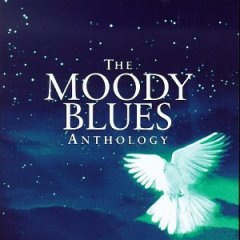
Anthology is a compilation album by the progressive rock band The Moody Blues. It was released on 20 October 1998 and nearly spans the band's entire career from 1965 to 1991.

"Isn't Life Strange" is a 1972 single by the English progressive rock band The Moody Blues, which was based on Pachelbel's Canon In D. Written by bassist John Lodge, it was the first of two singles released from their 1972 album Seventh Sojourn, with the other being "I'm Just a Singer ". "Isn't Life Strange" is one of the Moody Blues' longer songs, lasting for over six minutes.
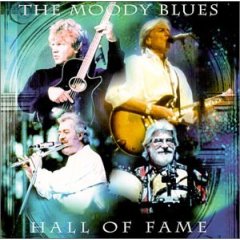
Hall of Fame is a live album by the progressive rock band The Moody Blues. It was recorded at a concert performed at the Royal Albert Hall, which included backing by a live orchestra. The album was released on 8 August 2000. It is the second Moody Blues live album to feature a live orchestra, with the first being A Night at Red Rocks with the Colorado Symphony Orchestra. This is the last live release to feature Ray Thomas. A decade on, all but "Overture" and "Legend of a Mind" appeared on the budget release Live at the Royal Albert Hall with the World Festival Orchestra released by Sony Music Custom Marketing Group in the United States. The concert is also available on DVD.

Lovely to See You: Live is a two-disc live album by The Moody Blues. Released on 15 November 2005, Lovely to See You: Live was recorded at a performance at the Greek Theater in Los Angeles, California. The album is named after The Moody Blues song "Lovely to See You", from their 1969 album On the Threshold of a Dream. Unlike the Moody Blues' two previous live albums A Night at Red Rocks with the Colorado Symphony Orchestra and Hall of Fame, Lovely to See You: Live does not feature a live orchestra. It is also their first live album since Ray Thomas retired due to health issues.
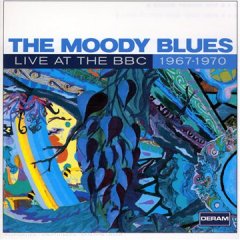
Live at the BBC: 1967–1970 is a two-disc album by The Moody Blues. Released in 2007, it features forty-one live recordings of various performances for the BBC between 1967 and 1970. The album features multiple recordings of some songs, so they are listed more than once.
"The Actor" is a 1968 song by the progressive rock band, The Moody Blues. Written by band member Justin Hayward, it was first released on their 1968 album In Search of the Lost Chord. "The Actor" is one of Justin Hayward's signature love ballads. The song prominently features Justin Hayward singing along with an acoustic guitar. Ray Thomas is also prominently featured playing the flute behind Hayward's voice.
"Lazy Day" is a 1969 song by the progressive rock band The Moody Blues. It was written by the band's flautist Ray Thomas, although he does not play flute on this particular song. It was recorded and released in 1969 on the Moody Blues Album On the Threshold of a Dream.
"Are You Sitting Comfortably?" is a 1969 song by the progressive rock band The Moody Blues. It was written jointly by band members Justin Hayward and Ray Thomas. It was recorded and released in 1969 on the Moody Blues Album On the Threshold of a Dream.
"Gypsy " is a 1969 song by the progressive rock band The Moody Blues, from their album To Our Children's Children's Children, a concept album about space travel. The song was written by band-member Justin Hayward.
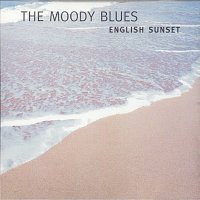
"English Sunset" is the only single released by The Moody Blues from their 1999 album Strange Times, making it their first single in nearly 8 years. Their previous single had been 1991's "Bless the Wings " from Keys of the Kingdom. "English Sunset" should not be confused with the Moody Blues' 1967 song "The Sunset" from Days of Future Passed.

Live at the Isle of Wight Festival 1970 is a live album by The Moody Blues that consists of their live performance at the Isle of Wight Festival in 1970. The album was released in 2008.

Gold is a compilation album by The Moody Blues, released in 2005 by Polydor.
